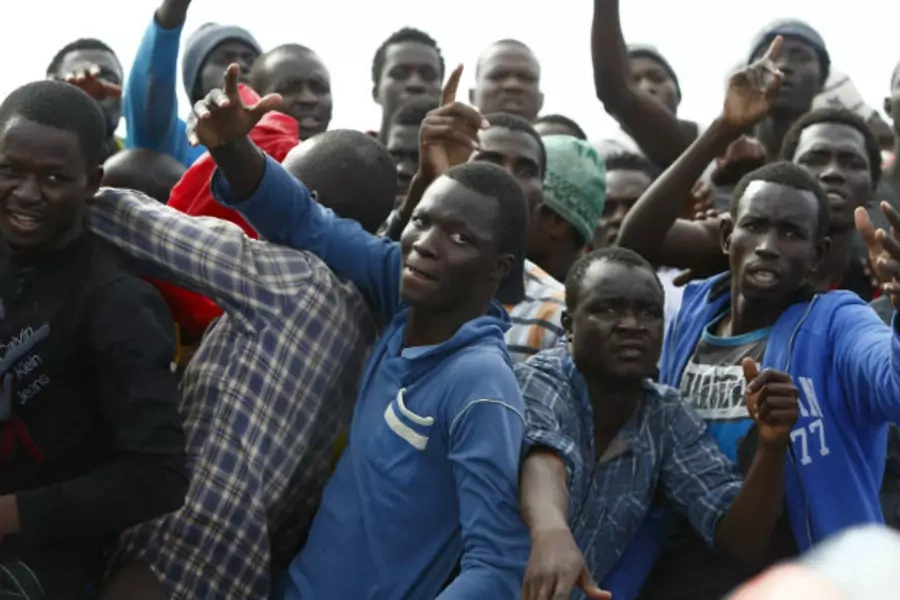More on:
This is a guest post by Amanda Roth, a former intern for the Council on Foreign Relations Africa Program. She is a graduate student at the Columbia School of International and Public Affairs, where she studies international security policy.
Last year, the horrific shipwreck off the Italian island of Lampedusa brought international attention to the dangers faced by the thousands of migrants who cross the Mediterranean Sea to find safety in Europe. The wreck, which occurred less than a quarter-mile from Italy’s shores, killed 366 migrants from Eritrea and Somalia.
The Mediterranean is the world’s deadliest migrant crossing, according to the International Organization for Migration, with more than three thousand reported deaths so far this year. That number is up from approximately seven hundred the year before, and accounts for 75 percent of all documented migrant deaths worldwide. More people are making the journey from Africa and more people are dying.
In response, the Italian government launched Operation Mare Nostrum. Run by the Italian Coast Guard, the operation has saved the lives of more than 150,000 people. Yet, as of November 1, 2014, Operation Mare Nostrum came to an end, leaving the fate of the thousands of migrants expected to attempt future journeys uncertain.
There is no adequate replacement for the now-expired Operation Mare Nostrum. Despite the program’s success, it ended due to “unsustainable” costs. Instead, Mare Nostrum will be replaced by Operation Triton, which is run by the EU and is significantly smaller in scope and has one-third the budget of Mare Nostrum. It will not have an explicit search and rescue function. Instead, the operation will only patrol within thirty miles of Italy’s borders.
There is little political support among EU governments for larger search and rescue missions. Last week, the United Kingdom announced that it would not contribute to future rescue missions. Although the country has received harsh criticism for the decision, James Brokenshire, UK immigration minister, defended the choice, arguing that “since Italy launched its Mare Nostrum operation in October 2013, there has been an unprecedented increase in illegal immigration across the Mediterranean and a four-fold increase in the deaths of those making that perilous journey.”
Networks of smugglers charge migrants large sums of money in exchange for passage. These human traffickers have been accused of grave human rights abuses, including the rape and torture of migrants. The UK and others accuse the smugglers of abusing existing search and rescue missions by knowingly using unsafe boats and hoping their human cargo is rescued and brought to European shores.
Does Operation Mare Nostrum encourage migrants to make the dangerous journey? Although it may contribute, it isn’t the entire reason. Ongoing conflicts and brutal repression in Somalia, Eritrea, and elsewhere have caused tens of thousands of refugees to flee. Turmoil in northern Africa following the Arab Spring means that fewer refugees are settling in Egypt and Libya, preferring to risk the crossing to the EU.
While Italy’s Mare Nostrum has saved tens of thousands of lives, it still hasn’t been able to respond to the full scope of the crisis. A few days after the UK’s announcement in October, for example, a boat sank off the coast of Libya. Although the Italian Coast Guard rescued ninety-three people, another twenty African migrants died.
Tightened border security, stricter scrutiny of asylum claims, and the close patrol of traditional land routes have driven many migrants to try and reach Europe by sea. Now that Mare Nostrum has ended, many more are likely to die. Despite the United Kingdom’s claims, it’s far from clear that the decision not to support rescue missions will reduce the numbers of people making the journey. Will the European Union really turn its back on the thousands of refugees trying to reach safe shores?
More on:
 Online Store
Online Store
